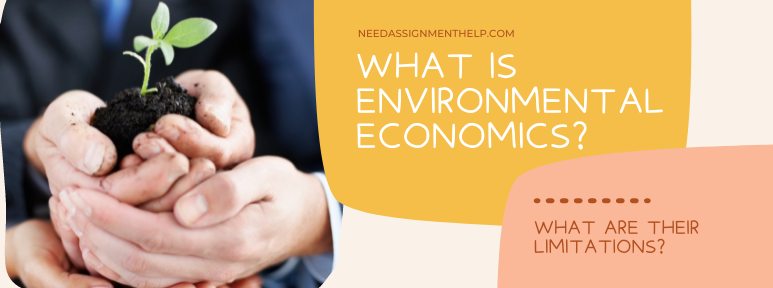


Through the name, we can very easily make out that environmental economics is concerned about environmental issues. Economics is a subject that studies the allocation of scarce resources, business and market functions, and the flow of money. Environmental economics is the application of the principles of economics. It includes the development and management of natural and environmental resources.
The basic dispute supporting natural financial matters is that biological accommodations have money-related worth. There are ecological costs of monetary advancement that do not count in the current market model. Clean water, air, wildlife survival, and the general climate are some of the environmental facilities.
Overuse of these environmental facilities creates pollution or other environmental destruction that shows market failure. Thus, environmental economists assess the cost and profit of certain economic strategies and policies that are made to correct these problems. The two types of strategic tools used in environmental economics such as perspective and market-based. Here the government sets goals but otherwise allows private sectors to meet these goals the way they wanted.
Here, in this part, we will try to understand the link between the economy and the environment. The economy can be divided into two sectors: production and consumption. The environment is used as a:
The Environment has become the fastest-growing field of study in economics. Nature plays a significant role in the formation of economic processes and economic value. Hence it is essential to increase the awareness of the interconnection between the economy and the environment.
The challenges in modern society are whether to maintain environmental quality or to increase industrial production which creates conflicts of interest between potential gainers. The economic problem is the allocation of resources in the context of externalities. Human activities like excess exploitation of resources and waste products depend on the ecological conditions of an economy that influence environmental quality.
Environmental economics manages monetary and administrative parts of contamination and regular assets. It interfaces between people and their actual environmental factors. It contemplates the effect of contamination on individuals and recommends public use of assets in a legitimate manner so that there might be an increment in friendly social welfare or minimization of social expenses. This discipline is drawn more from microeconomics than macroeconomics as it primarily includes why and how people make decisions that lead to consequences for the natural environment.
Environmental economics applies economic principles to understand and address environmental issues. It focuses on evaluating the costs and benefits of environmental policies and interventions, integrating environmental concerns into economic decision-making processes.
Clean water, air quality, biodiversity, and climate stability are examples of environmental resources and services with economic value. These resources contribute to economic activities, health, and overall well-being, yet their value is often overlooked in traditional market models.
Environmental degradation, such as pollution or depletion of natural resources, leads to market failure by creating externalities—costs or benefits that are not reflected in market prices. Environmental economists analyze these externalities and propose policies to correct market failures and promote sustainable resource management.
The environment serves as a supplier of natural resources for production, a provider of environmental goods for consumption and tourism, and a waste sink that absorbs and processes waste products generated by economic activities. Understanding this interplay is crucial for sustainable economic development.
Environmental economics encompasses a wide range of topics, including the analysis of economic activities’ environmental impacts, welfare considerations in resolving environmental problems, development of clean technologies, formulation of conservation policies, and balancing economic growth with environmental quality.